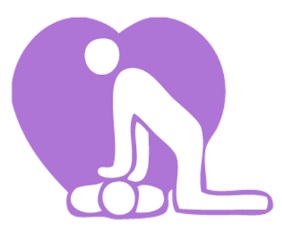 The Harrogate Resuscitation Department teaches and advises on the underlying principles of resuscitation so that all patients are treated optimally.
The Harrogate Resuscitation Department teaches and advises on the underlying principles of resuscitation so that all patients are treated optimally.
Our team consists of resuscitation officers and an administrator. Our vision is to empower staff members to do the right thing by learning the right way to deliver resuscitation excellence every time for our patients.
We are a Resuscitation Council UK accredited centre, facilitating national courses in Adult Advance Life Support and Adult and Paediatric Immediate Life Support. Our in-house bespoke courses cover a wide range of themes from basic life support (New Born, Adult and Paediatric), 12 lead ECG recognition and interpretation to a Deteriorating Patient study day. If you are a health professional interested in our courses please click here.
Our Quality Improvement programmes have led to implementation of new resuscitation equipment, paediatric emergency aide-memories, polices and training to improve patient safety and experience, and promotion of clearer communication on advanced care planning, ensuring better delivery and continuity of care.
We participate in the National Cardiac Arrest Audit which is the only national, clinical, comparative audit of in-hospital cardiac arrest with the aim of improving resuscitation care and outcomes for the UK and Ireland. It is a joint initiative between the Resuscitation Council (UK) and ICNARC (Intensive Care National Audit & Research Centre).
Information on resuscitation
CardioPulmonary Resuscitation (CPR) is a skill that involves chest compressions – repeatedly pushing down firmly on the patient’s chest to pump blood around the body, breathing air into the patient’s lungs and the use of a Defibrillator to provide an electric shock if appropriate. If a person has a sudden cardiac arrest – this is when their heart and/or breathing stops – their brain can only survive for 3-5 minutes without oxygen. Currently only one in 10 people survive an out of hospital cardiac arrest. If CPR was started immediately the chance of survival doubles and this is increased up to 70 per cent if a public access defibrillator is used.
CPR training is widely available today and our department advocates members of the public learning these skills and are incredibly proud to be helping teach these skills to a new generation of children through the annual Restart a Heart day. There are even some CPR skills that can be learnt online with The Resuscitation Council UK website, Lifesaver, see bottom of page for further details.
Not all patients will receive CPR and this could be for a number of reasons which include: the patient has decided in advance not to be resuscitated, the patient has a life limiting medical condition, the patient’s medical team feel that CPR would not be successful or the patient is nearing the end of their life following a terminal illness. For these reasons, as well as others, a Do Not Attempt Cardiopulmonary Resuscitation (DNACPR) form will be discussed and completed. This form states that if a patient’s heart or breathing stops as expected due to their medical condition, no attempt should be made to perform cardiopulmonary resuscitation (CPR). A decision not to attempt resuscitation is about CPR only. All other treatment, if appropriate, will be given, for example pain relief, antibiotics, drugs for symptom control and oxygen.
How well you recover from a cardiopulmonary arrest depends on what caused it. After CPR, a few people will make a full recovery, but if you have a long-term condition or terminal illness, it is much less likely to work. Even if CPR does work, this is an invasive procedure and you may sustain an injury. You may also spend a lot of time in a coronary care or intensive care unit, which can be upsetting for you and your relatives. Some people never return to the level of physical or mental health they enjoyed before. Some may have brain damage or go into a coma. A DNACPR informs the patient’s medical and nursing team of their wishes and allows the patients to die a natural death with dignity.
You can initiate the discussion of a DNACPR order with your doctor or specialist nurse or, if appropriate your doctor will discuss the decision regarding DNACPR with you. Your wishes are very important, and the healthcare team will want to know what you think. In most cases, doctors and their patients agree about their treatment when there has been good communication. If you would like to know more about DNACPR your own GP, doctor in charge of your care, specialist nurse or the palliative care team should be able to provide you with answers you have to any questions. DNACPR decisions should include discussions with patients, relatives or relevant others wherever possible.
The links at the bottom of the page provide more detail regarding CPR and DNACPR.
Key staff
Resuscitation Lead: Paula De Souza
Senior Resuscitation Officer: Tom Chatwyn
Resuscitation Officer: Emily McIntosh
Administrator: Janet Harrison
Location and contact details
The Resuscitation Department at Harrogate and District NHS Foundation Trust
Strayside Education Centre
Lancaster Park Road, Harrogate
HG2 7SX
Phone number: 01423 555601
Email: [email protected]